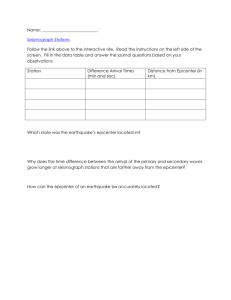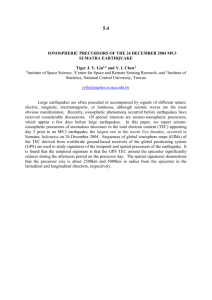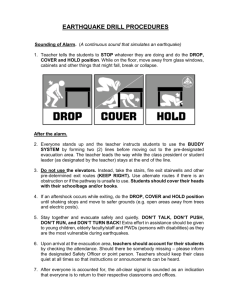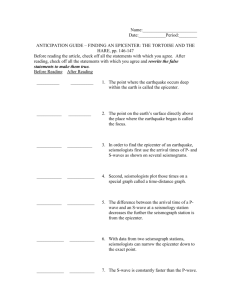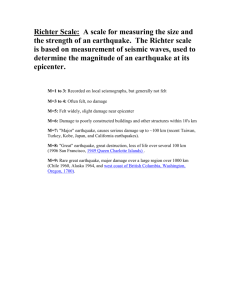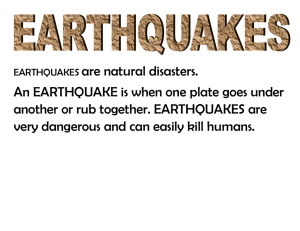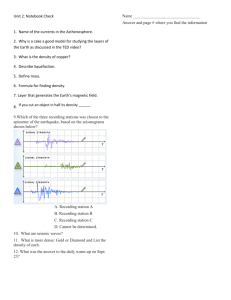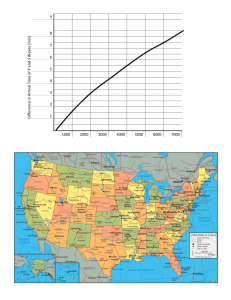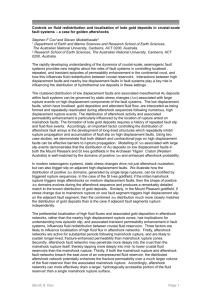jgra51767-sup-0001-supplementary
advertisement
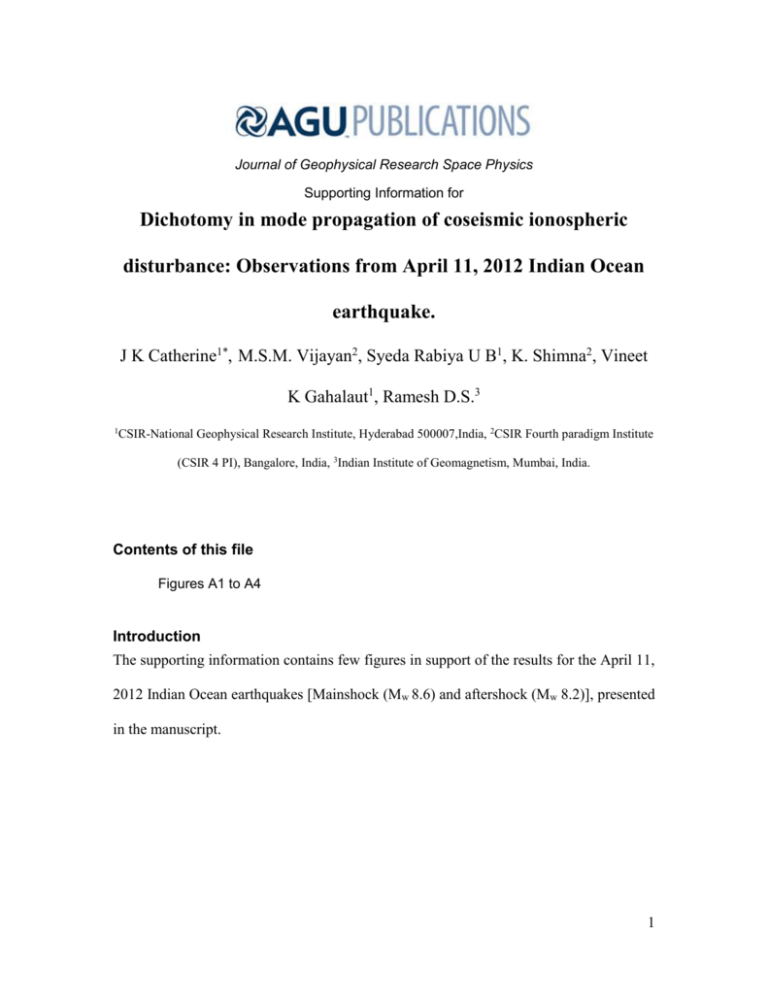
Journal of Geophysical Research Space Physics Supporting Information for Dichotomy in mode propagation of coseismic ionospheric disturbance: Observations from April 11, 2012 Indian Ocean earthquake. J K Catherine1*, M.S.M. Vijayan2, Syeda Rabiya U B1, K. Shimna2, Vineet K Gahalaut1, Ramesh D.S.3 1 CSIR-National Geophysical Research Institute, Hyderabad 500007,India, 2CSIR Fourth paradigm Institute (CSIR 4 PI), Bangalore, India, 3Indian Institute of Geomagnetism, Mumbai, India. Contents of this file Figures A1 to A4 Introduction The supporting information contains few figures in support of the results for the April 11, 2012 Indian Ocean earthquakes [Mainshock (Mw 8.6) and aftershock (Mw 8.2)], presented in the manuscript. 1 Figure A1.Contours of simulated coseismic vertical displacement (in meters) due to the April 11, 2012, Mw 8.2 aftershock using the source model of Yue et al. (2012). The blue and pink stars denote the epicenters of mainshock and aftershock respectively. Red solid circles are ground GPS receivers and blue triangles are SIPs observed by satellite PRN32. Red solid curve represent the trajectory of satellites 32. Black open stars along the trajectory is the SIP of the CID arrival for the aftershock. (b) Traces of bandpass filtered (1-10 min) coseismic TEC variation as observed by GPS satellite PRN32. Red vertical line indicates the origin time of aftershock. Distances of the SIPs of GPS sites from the epicenter are indicated on the right side. 2 Figure A2. Travel Time diagram of Band-pass filtered TEC in response to the April 11, 2012 aftershock (Mw 8.2) earthquake at the SIPs to the epicenter as recorded by satellite PRN32. Vertical thick lines indicate the time of the aftershock at 10:43 UT. The slanted black line shows the best fit of the CID arrival times denoting the propagation velocities of ionospheric TEC disturbance. The distances are great circle distances between SIPs and the epicenter. 3 4 Figure A3.Ionospheric coupling factor (α) modeled Rayleigh induced atmospheric wave generated at the epicenter of April 11, 2012 Indian Ocean earthquake. Bold red dot indicates epicenter of the earthquake. Figure A4.Comparison between dTEC and Relative dTEC. (a) Observations closer to northern EIA crest (b) Observations closer to EIA trough at the equator (c) Observations closer to the southern EIA crest. 5 6
